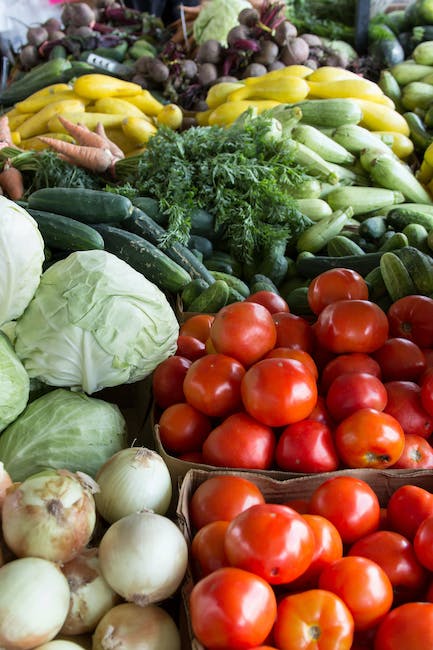Are Frozen Vegetables Healthy? Unveiling the Nutritional Truth
When it comes to maintaining a healthy diet, vegetables are non-negotiable. They’re packed with vitamins, minerals, and fiber, and are a cornerstone of balanced nutrition. But in our fast-paced world, fresh produce isn’t always an option. Enter frozen vegetables – a convenient alternative that’s often overlooked. But are they truly healthy? In this comprehensive guide, we’ll delve into the nutritional integrity of frozen vegetables, debunk common myths, and help you make informed choices for your well-being.
Introduction: The Great Frozen Debate
Imagine this: vibrant green broccoli, sweet corn kernels bursting with flavor, and colorful medleys of mixed vegetables – all available year-round, regardless of the season. That’s the promise of the frozen vegetable aisle. But amidst the convenience, a question lingers in the minds of health-conscious consumers: Are these frosty counterparts as nutritious as their fresh siblings? This article will explore the science behind frozen vegetables and provide you with the knowledge to optimize your diet.
The Freezing Process: Preserving Nutrients at Their Peak
What Happens When Vegetables Are Frozen?
- Locking in Freshness: The journey from farm to freezer is designed to retain nutritional value. Vegetables are typically blanched and frozen within hours of harvest, which helps preserve vitamins and minerals.
- Blanching Benefits: This brief heat treatment deactivates enzymes that can lead to spoilage, extending shelf life while maintaining color and texture.
Does Freezing Affect Nutritional Content?
- Vitamin Retention: Contrary to popular belief, freezing can actually preserve most vitamins, especially water-soluble ones like vitamin C and B vitamins.
- Mineral Stability: Minerals are largely unaffected by freezing, ensuring that frozen vegetables remain a good source of essential nutrients like iron, calcium, and potassium.
Comparing Fresh and Frozen: A Nutritional Showdown
Fresh Vegetables: Pros and Cons
- Peak Nutrition: Fresh vegetables, when consumed at their freshest, can offer optimal nutrient levels.
- The Downside: Nutrient loss occurs over time. Transport and storage can lead to a decline in vitamins, especially if produce is not consumed promptly.
Frozen Vegetables: Pros and Cons
- Consistent Quality: Freezing preserves nutritional content, providing a reliable source of vitamins and minerals throughout the year.
- Myth Busting: Studies have shown that frozen vegetables can be just as nutritious as fresh ones, sometimes even more so if the fresh produce has been stored for a long time.
Incorporating Frozen Vegetables into a Healthy Diet
How to Choose the Best Frozen Vegetables
- Avoid Added Ingredients: Opt for plain frozen vegetables without sauces or seasonings, which can add unnecessary calories, fat, and sodium.
- Diverse Selection: Embrace variety. A mix of different vegetables ensures a wider range of nutrients in your diet.
Cooking Tips for Maximum Nutrition
- Steaming Over Boiling: Steam frozen vegetables to minimize nutrient loss into cooking water.
- Quick Cooking: Cook them for the shortest time necessary to maintain their nutritional integrity and avoid overcooking.
Common Questions About Frozen Vegetables
Are Frozen Vegetables as Good as Fresh for Weight Loss?
- Calorie Considerations: Frozen vegetables are low in calories and high in fiber, making them ideal for weight management.
- Satiety Factor: Their high nutrient density can help you feel full longer, reducing the likelihood of snacking on less healthy options.
Can You Rely Solely on Frozen Vegetables for Nutrition?
- Balanced Approach: While frozen vegetables are a healthy choice, it’s important to include a variety of food sources in your diet for comprehensive nutrition.
- Fresh and Frozen Synergy: Combine both fresh and frozen produce to ensure a diverse intake of fruits and vegetables.
Conclusion: Embracing Frozen Vegetables for a Healthier Lifestyle
In summary, frozen vegetables are a nutritious, convenient, and cost-effective option for those looking to maintain a healthy diet. They lock in essential vitamins and minerals and can be a better choice than fresh vegetables that have been stored for extended periods. By choosing wisely and cooking them properly, you can enjoy the full benefits of these frozen powerhouses.
Remember, a balanced diet is key, and incorporating both fresh and frozen vegetables will provide the best nutritional outcomes. So next time you’re navigating the frozen aisle, feel confident in the knowledge that these frosty veggies are packed with goodness, ready to support your health goals all year round.


